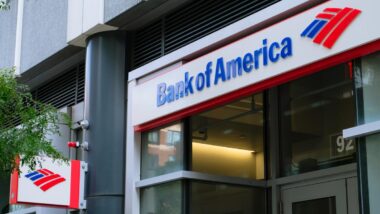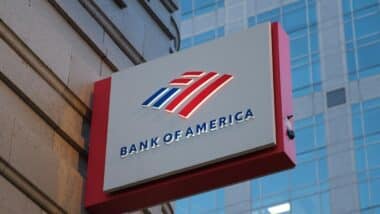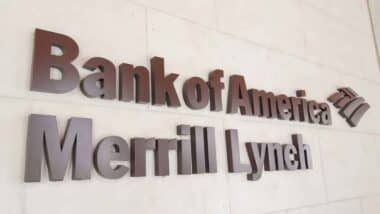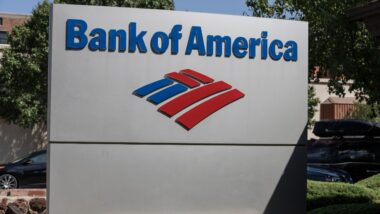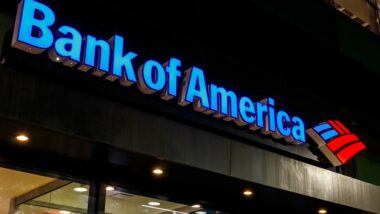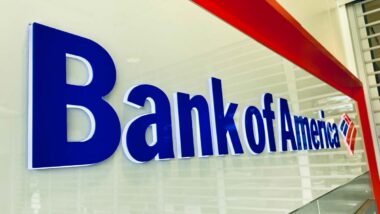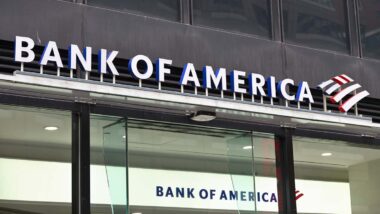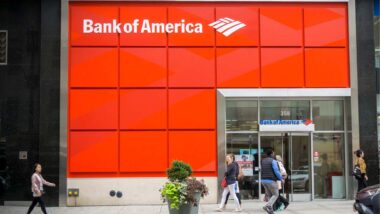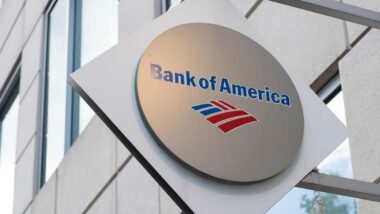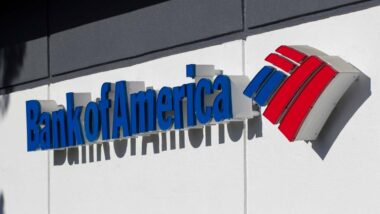 Parties have reached a settlement ending an overdraft fees class action lawsuit against Bank of America.
Parties have reached a settlement ending an overdraft fees class action lawsuit against Bank of America.
The $66.6 million Bank of America overdraft settlement concludes a class action complaint filed in February 2016 by plaintiff Joanne F. At the heart of her complaint is the allegation that Bank of America routinely violated the National Banking Act (NBA) by charging customers an additional $35 fee if they failed to bring their negative-balance account back to solvency within a five-day period after an overdraft.
According to this lawsuit, the additional fee was levied over and above the initial insufficient fund fee of $35, which may or may not have brought the account into the negative-balance state initially. As argued by the plaintiffs, this action was in violation of the NBA because the charges exceeded the interest rate allowed.
Prior to agreeing to the Bank of America overdraft settlement, the megabank fought to have the litigation thrown out of court on the basis that the charge could not be considered interest per se, but rather standard flat accountholder fees.
In December 2016, U.S. District Judge M. James Lorenzo disagreed with other opinions on the issue and ruled that the extra charges are indeed connected to what could be called an extension of credit and thus be considered interest.
The megabank appealed this decision to the ninth circuit, but during the past month, the involved parties were able to come to an agreement with regard to the Bank of America overdraft settlement.
The Bank of America overdraft settlement was reached after three additional named plaintiffs were added to the suit in March 2017.
According to the legal documentation, the Bank of America overdraft settlement offers $37.5 million in cash settlement funds. These funds will be deposited into an escrow account established by the megabank within 30 days of the initial approval.
The remaining $29.1 million of the Bank of America overdraft settlement is for debt reduction payments. These payments are essentially refunds of extended overdrawn balance charges (EOBCs) to patrons whose accounts were closed during the relevant legal period while still owing this charge.
Also as part of the settlement agreement, Bank of America has agreed to eliminate the extra EOBCs to its patrons for a five-year period. It still intends to charge the standard $35 insufficient funds fee when applicable. This former action will come with automatic updates to associated credit agencies.
Bank of America is not the only bank that has come under scrutiny for these types of charges in recent years. A current class action investigation is looking into overdraft fee practices at HSBC, Capital One, and several other banks.
If you feel you have unfairly been charged additional fees for a negative balance or similar fees from one of these banks, you may qualify to participate in a free overdraft fees class action investigation.
UPDATE: February 2018, the Bank of America overdraft fee class action settlement is now open. Click here to learn more.
Do YOU have a legal claim? Fill out the form on this page now for a free, immediate, and confidential case evaluation. Some of the banks and credit unions being investigated include, but are not limited to:
- HSBC Bank
- UMB Bank
- State Employees Credit Union
- Pentagon Federal Credit Union
- Boeing Employees Credit Union
- Alliant Credit Union
- Star One Credit Union
- First Technology Federal Credit Union
- America First Credit Union
- American Airlines Federal Credit Union
- Alaska USA Federal Credit Union
- Vystar Credit Union
- Citizens Equity First Credit Union
- Teachers Federal Credit Union
- ESL Federal Credit Union
- Patelco Credit Union
- DFCU Financial Credit Union
The attorneys who work with Top Class Actions will contact you if you qualify to let you know if an individual lawsuit or class action lawsuit is best for you. Hurry — statutes of limitations may apply.
ATTORNEY ADVERTISING
Top Class Actions is a Proud Member of the American Bar Association
LEGAL INFORMATION IS NOT LEGAL ADVICE
Top Class Actions Legal Statement
©2008 – 2026 Top Class Actions® LLC
Various Trademarks held by their respective owners
This website is not intended for viewing or usage by European Union citizens.
Get Help – It’s Free
Join a Free Bank & Credit Union Overdraft Fee Class Action Lawsuit Investigation
If your bank and credit union has engaged in deceptive overdraft fee practices, you may have a legal claim. Fill out the form on this page now to find out if you qualify!
An attorney will contact you if you qualify to discuss the details of your potential case.
In order to properly investigate overdraft fee claims, you may be required to disclose bank statements to overdraft fee attorneys. Please note that any such information will be kept private and confidential.
ATTORNEY ADVERTISING
The choice of a lawyer is an important decision and should not be based solely on advertisements.
E-mail any problems with this form to [email protected]
PAID ATTORNEY ADVERTISEMENT: THIS WEB PAGE IS AN ADVERTISEMENT AND THE PARTICIPATING ATTORNEY(S) ARE INCLUDED BECAUSE THEY PAY AN ADVERTISING FEE. The attorney in charge of this advertisement is T.Kick. It is not a lawyer referral service or prepaid legal services plan. Top Class Actions is not a law firm. Top Class Actions does not endorse or recommend any lawyer or law firm who participates in the network, nor does it analyze a person’s legal situation when determining which participating lawyers receive a person’s inquiry. It does not make any representation and has not made any judgment as to the qualifications, expertise or credentials of any participating lawyer. No representation is made that the quality of the legal services to be performed is greater than the quality of legal services performed by other lawyers. The information contained herein is not legal advice. Any information you submit to Top Class Actions does not create an attorney-client relationship and may not be protected by attorney-client privilege. Do not use the form to submit confidential, time-sensitive, or privileged information. All photos are of models and do not depict clients. All case evaluations are performed by participating attorneys.

